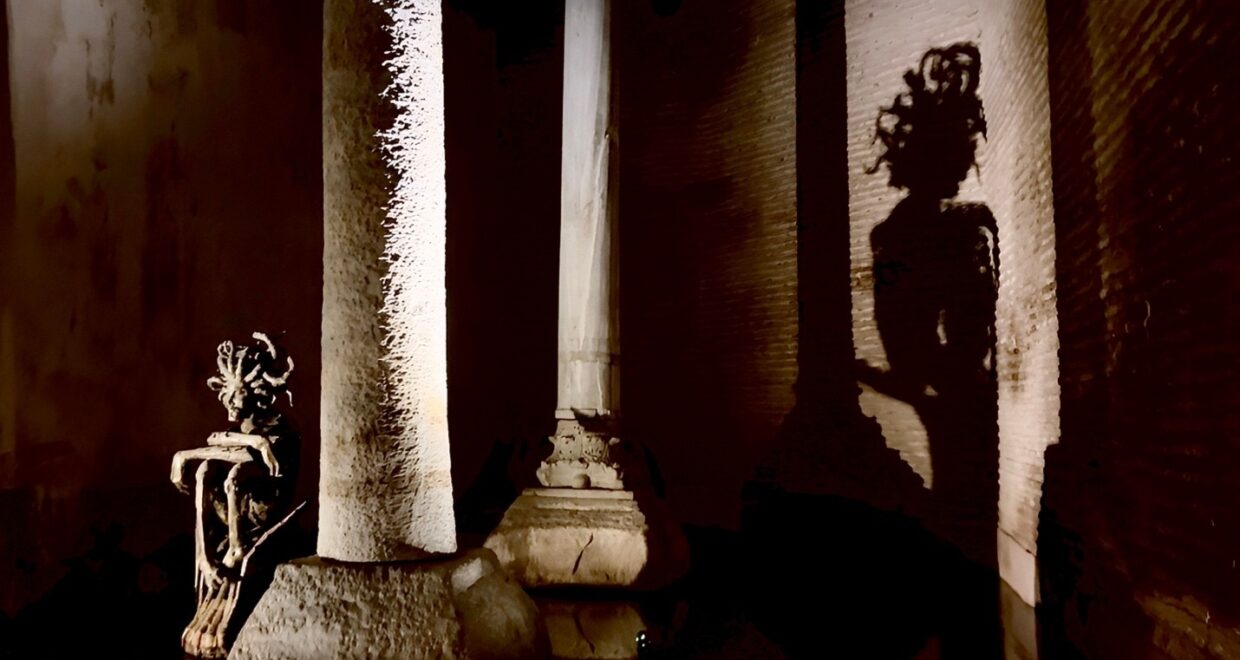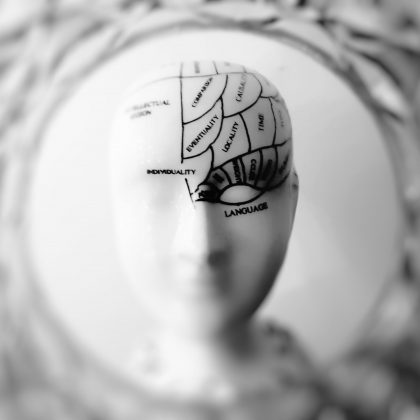Istanbul’s Hidden Secret: The Woman in the Shadow
In the October 25 edition of Muses features the poetic prose of psychiatrist Bahjat Najeeb, whose encounter with the monumental Basilica Cistern in Istanbul set his muse on a fine meditation on the fraught nature of Borderline Personality Disorders.
Beneath the bustling streets of Istanbul, beyond the grind of trams and the pull of ancient domes, lies the cistern, ancient and still, where she lives. The Basilica Cistern, built during the Byzantine empire and once a reservoir of water, now holds something even deeper: still time. And in the corner, nearly missed and dimly lit, she waits.
A stone sculpture crowned with serpents, her gaze empty, her posture quiet. Light softly touches where she is, just enough to remind you of her presence; not enough to tell you who she is. But it is not the sculpture that captures attention, it’s her shadow; cast sharp against the brick wall behind her, larger than the sculpture itself.
This is Medusa, the gorgon from Greek mythology whose glance turned men into stone. For generations, she has inspired fear. But here, in solitude, she feels different. Not a threat, just an inquiry. Not monstrous, just misunderstood.
Stare a little longer, and you’ll see vulnerability in her visage and strength in her stillness. The woman in the shadow, so often feared, depicts the emotional reality of so many who live in unseen battles today. Particularly those with borderline personality disorder (BPD): one of the most misunderstood conditions in psychiatry.
The term ‘Borderline’ was used by early psychoanalysts to describe patients whose symptoms were considered borderline between neurosis and psychosis. The definition of BPD has changed several times throughout the decades, reflecting psychiatry’s developing knowledge of personality disorders. BPD was officially introduced in psychiatric nosology in 1980 by the Diagnostic and Statistical Manual, Third Edition (DSM III). Subsequent versions modified the criteria, with DSM-IV and DSM-V characterising the disorder with emotional instability, fear of abandonment, unstable relationships, identity disturbance, impulsivity, self-harm, emptiness, intense anger and transient stress-related paranoia or dissociation. The International Classification of Diseases (ICD) took its own path, identifying it under the broader ‘Emotionally unstable personality disorder’ classification, then abandoning the rigid classification in ICD-11 in favor of a dimensional model with borderline pattern specifier. Over time, the evolution has been from inflexible categories to recognising as a spectrum of features and severity driven by biopsychosocial factors.
Individuals with BPD are seen for their shadows: the magnanimity of emotions, the outbursts. But behind that shadow is someone longing to be held, to be known and fears to be abandoned, terrified of disappearing.
This is what makes the scene so haunting. Her shadow looms, misunderstood. While she sits quietly in the dark, forgotten and abandoned. It’s easier to see the shadow in its form, hence the world never leans close enough to understand the shape that casts it.
The hidden secret of Istanbul does not ask you to fear her. It instead invites you to pause. To reconsider what we label too quickly. In doing so, it gives voice to those in the dark, waiting to be seen for who they truly are.
The woman in the shadow, who, when light falls right, stops looking like a monster. Because sometimes, amid darkness, to simply be seen is the most radical act of all.
Welcome to Muses – the arts blog from BJPsych International. This new blog aims to highlight international art and artists, particularly from low-and-middle-income countries, with a focus on mental health. We welcome submissions for consideration, such as, comments on artwork, visual arts, literature, drama, films, podcasts, and videos. Do have a look at the instructions for blog authors for details on how to submit. General enquiries about the blog: BJPInternational@rcpsych.ac.uk
Dr Marinos Kyriakopoulos, Editor-in-Chief, BJPsych International.






